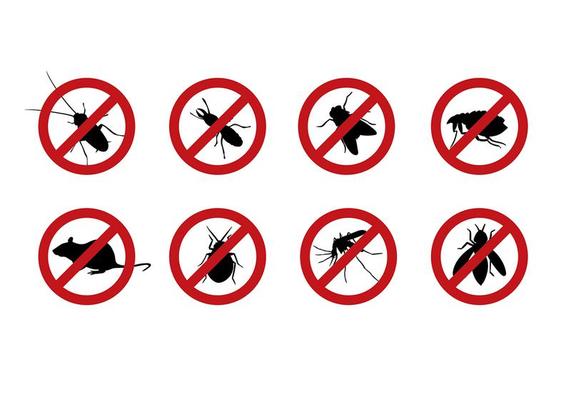A1 Bed Bugs Exterminator Portland - Fast and Specialist Service
A1 Bed Bugs Exterminator Portland - Fast and Specialist Service
Blog Article
Understanding the Art of Insect Control: Proven Strategies for Long-Term Avoidance and Removal
Pest problems can be a persistent obstacle for home owners and services alike, calling for a calculated strategy to efficiently take care of and eliminate these unwanted burglars. By mastering the art of bug control via tested methods for long-term prevention and elimination, one can develop a positive protection versus potential dangers. Recognizing the behavior of parasites, carrying out integrated insect monitoring methods, and making use of all-natural remedies are just a few crucial elements important to achieving long lasting success in this venture. Nevertheless, the ins and outs of keeping sanitation, performing routine examinations, and diligent monitoring play just as crucial roles in sustaining a pest-free environment. As the battle versus parasites proceeds to advance, taking on a thorough approach comes to be paramount in protecting your property from potential damage.
Comprehending Insect Behavior
To properly execute parasite control techniques, it is vital to understand the intricate behaviors displayed by numerous insects in various settings. Understanding bug actions is a fundamental element of developing efficient insect management strategies. Each parasite varieties has distinct routines and choices that affect their reproduction, feeding, and movement patterns. By researching these actions, pest control professionals can determine one of the most weak spots in the insect's life cycle to target treatments better.
Recognizing this, insect control experts can concentrate on securing access points and getting rid of food attractants to prevent these pests. By resolving wetness concerns and sealing crevices and splits, invasions can be significantly minimized.
Executing Integrated Pest Administration
Implementing Integrated Bug Management entails using an all natural strategy to address bug concerns by combining different control strategies and strategies. This approach highlights avoidance, tracking, and control of parasites through a combination of organic, social, physical, and chemical treatments. By integrating several strategies, Integrated Pest Management (IPM) aims to decrease making use of pesticides while successfully handling pest populaces.
One key aspect of IPM is determining the certain parasite trouble and understanding its habits and life process. This knowledge assists in establishing one of the most appropriate control steps to execute. Avoidance is likewise a basic concept of IPM, concentrating on removing elements that attract parasites, such as shelter, food, and water. Regular surveillance and assessment are vital to find insect problems early and avoid them from intensifying.
Additionally, IPM promotes the usage of lasting and ecologically friendly pest control techniques to reduce harm to non-target microorganisms and the surrounding community - a1 residential pest control portland or bed bugs. By embracing an Integrated Pest Monitoring technique, services and individuals can effectively manage pests while reducing reliance on chemical pesticides
Making Use Of Natural Solutions
Structure upon the foundation of Integrated Pest Administration, a change towards making use of natural treatments offers an eco-friendly approach to pest control. All-natural remedies harness the power of nature to prevent and eliminate bugs without making use of extreme chemicals that can damage the atmosphere, human beings, and useful microorganisms.

In addition, planting pest-repelling plants like marigolds, lavender, and mint around yards and homes can assist deter pests normally. These plants discharge smells that insects locate undesirable, driving them away without the requirement for chemical intervention.
Keeping Cleanliness and Health

Frequently inspecting and cleansing hard-to-reach areas such as behind home appliances, under sinks, and in storage wardrobes is important for recognizing and getting rid of possible insect environments. Clutter must be minimized as parasites frequently look for refuge in heaps of items or particles. Applying a routine cleaning timetable and ensuring all members of the house or employees are enlightened on proper health techniques can go a long way in bug prevention. By maintaining tidiness and hygiene criteria, the environment ends up being much less welcoming to parasites, ultimately supporting long-lasting parasite control initiatives.
Routine Examinations and Surveillance
Regular evaluations and keeping visit here an eye on play a vital role in proactively recognizing and attending to potential bug issues prior to they escalate. By performing regular assessments of both the interior and exterior of a home, bug control professionals can find early indications of infestations, insect access points, and problems helpful to insect task.
Regular tracking permits the early detection of parasite problems, allowing speedy intervention to stop widespread invasions that can be pricey and challenging to remove. In addition, routine examinations and keeping an eye on aid to abide by governing requirements and browse around this site maintain a secure, pest-free setting for residents. Implementing a proactive method via routine inspections and surveillance is a cornerstone of efficient bug administration, giving tranquility of mind and long-term protection against pest threats.
Final Thought
To conclude, understanding the art of insect control includes understanding parasite behavior, implementing incorporated bug administration, making use of all-natural solutions, keeping sanitation and health, and performing normal assessments and tracking. By complying with these tried and tested strategies for long-term avoidance and elimination, individuals can effectively take care of pest problems and develop a much healthier and much safer environment for themselves and their environments.
To properly carry out bug control techniques, it is essential to comprehend the detailed actions displayed by various parasites in various atmospheres (a1 commercial pest control portland). By researching these habits, pest control specialists can determine the most prone points in the parasite's life cycle to target interventions more successfully
Carrying Out Integrated Pest Monitoring involves making use of an alternative approach to resolve insect issues by incorporating various control methods and techniques. By keeping cleanliness and health standards, the atmosphere becomes less friendly to insects, inevitably supporting long-lasting pest control initiatives.
By conducting routine examinations of both the interior and exterior of a residential property, pest control experts can identify early indicators of problems, insect entrance points, and conditions helpful to pest activity.
Report this page